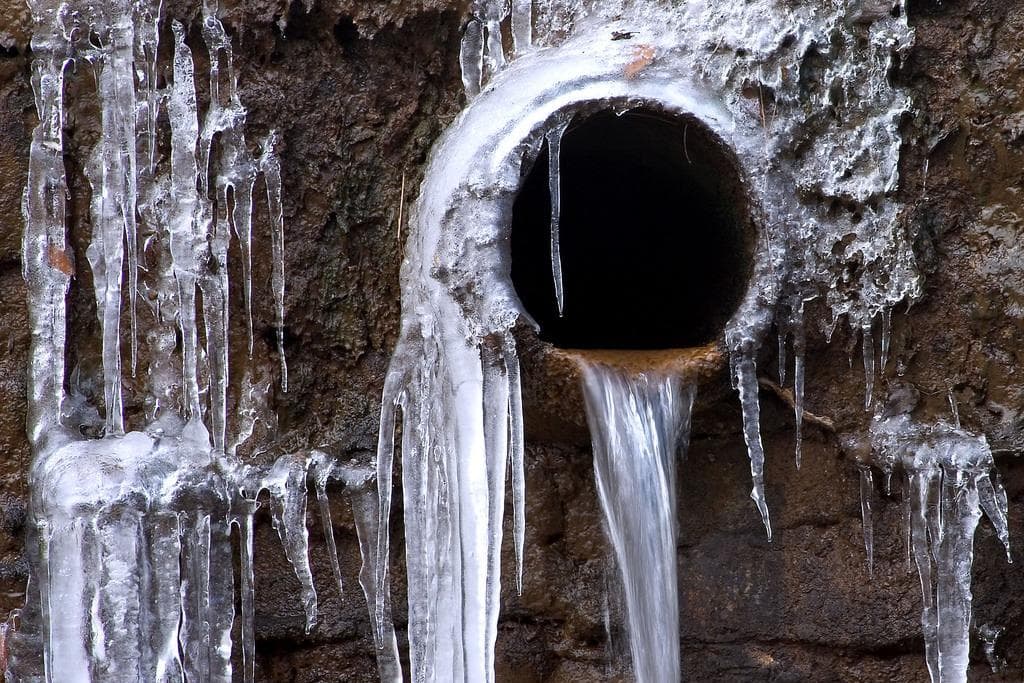Critical Strategies for Avoiding Frozen Pipes in Winter
Critical Strategies for Avoiding Frozen Pipes in Winter
Blog Article
Are you hunting for info concerning How To Avoid Freezing Pipes?

Cold weather can ruin your plumbing, especially by freezing pipelines. Below's just how to stop it from occurring and what to do if it does.
Intro
As temperatures decrease, the risk of icy pipelines boosts, potentially resulting in costly repair services and water damage. Recognizing just how to prevent frozen pipelines is crucial for house owners in cool environments.
Avoidance Tips
Insulating susceptible pipelines
Wrap pipes in insulation sleeves or utilize warm tape to secure them from freezing temperature levels. Focus on pipes in unheated or external locations of the home.
Home heating strategies
Keep interior areas appropriately heated, particularly locations with pipes. Open closet doors to permit warm air to circulate around pipes under sinks.
Exactly how to recognize frozen pipes
Search for reduced water circulation from faucets, unusual smells or sounds from pipelines, and visible frost on subjected pipelines.
Long-Term Solutions
Structural changes
Consider rerouting pipelines far from outside walls or unheated areas. Add extra insulation to attics, cellars, and crawl spaces.
Updating insulation
Buy top notch insulation for pipelines, attic rooms, and walls. Correct insulation helps keep constant temperatures and reduces the danger of icy pipelines.
Shielding Outdoor Pipes
Garden hose pipes and exterior taps
Detach and drain pipes yard pipes prior to winter season. Mount frost-proof faucets or cover outdoor taps with protected caps.
Comprehending Icy Pipes
What triggers pipes to ice up?
Pipes ice up when subjected to temperature levels listed below 32 ° F (0 ° C) for expanded durations. As water inside the pipes freezes, it broadens, putting pressure on the pipeline wall surfaces and potentially creating them to break.
Dangers and problems
Icy pipes can result in water system disturbances, home damage, and pricey repairs. Burst pipelines can flooding homes and create considerable structural damage.
Indications of Frozen Water Lines
Identifying icy pipelines early can stop them from bursting.
What to Do If Your Pipelines Freeze
Immediate activities to take
If you presume frozen pipelines, keep taps open to ease stress as the ice melts. Use a hairdryer or towels taken in warm water to thaw pipes slowly.
Conclusion
Preventing icy pipes needs aggressive steps and quick responses. By comprehending the reasons, indications, and safety nets, homeowners can secure their pipes throughout winter.
Helpful Tips to Prevent Frozen Pipes this Winter
UNDERSTANDING THE BASICS: WHY PIPES FREEZE AND WHY IT’S A PROBLEM
Water freezing inside pipes is common during the winter months, but understanding why pipes freeze, and the potential problems it can cause is crucial in preventing such incidents. This section will delve into the basics of why pipes freeze and the associated problems that may arise.
THE SCIENCE BEHIND FROZEN PIPES
When water reaches freezing temperatures, it undergoes a physical transformation and solidifies into ice. This expansion of water as it freezes is the primary reason pipes can burst. As the water inside the pipe freezes, it expands, creating immense pressure on the walls. If the pressure becomes too great, the pipe can crack or rupture, leading to leaks and water damage.
FACTORS THAT CONTRIBUTE TO PIPE FREEZING
Low Temperatures: Extremely cold weather, especially below freezing, increases the risk of pipes freezing. Uninsulated or Poorly Insulated Pipes: Pipes located in unheated areas, such as basements, crawl spaces, or attics, are more prone to freezing. Insufficient insulation or lack of insulation altogether exacerbates the problem. Exterior Wall Exposure: Pipes running along exterior walls are susceptible to freezing as they encounter colder temperatures outside. Lack of Heating or Temperature Regulation: Inadequate heating or inconsistent temperature control in your home can contribute to frozen pipes. PROBLEMS CAUSED BY FROZEN PIPES
- Pipe Bursting: As mentioned earlier, the expansion of water as it freezes can cause pipes to burst, resulting in significant water damage.
- Water Damage: When pipes burst, it can lead to flooding and water damage to your property, including walls, ceilings, flooring, and personal belongings.
- Structural Damage: Prolonged exposure to water from burst pipes can compromise the structural integrity of your home, leading to costly repairs.
- Mold and Mildew Growth: Excess moisture from water damage can create a favorable environment for mold and mildew growth, posing health risks to occupants.
- Disrupted Water Supply: Frozen pipes can also result in a complete or partial loss of water supply until the issue is resolved.
WHY CERTAIN PIPES ARE MORE PRONE TO FREEZING
- Location: Pipes located in unheated or poorly insulated areas, such as basements, crawl spaces, attics, or exterior walls, are at higher risk of freezing.
- Exterior Pipes: Outdoor pipes, such as those used for irrigation or exposed plumbing, are particularly vulnerable to freezing as they are directly exposed to the elements.
- Supply Lines: Pipes that carry water from the main water supply into your home, including the main water line, are critical to protect as freezing in these lines can affect your entire plumbing system.
- Underground Pipes: Pipes buried underground, such as those connected to sprinkler systems or outdoor faucets, can be susceptible to freezing if not properly insulated.
https://busybusy.com/blog/helpful-tips-to-prevent-frozen-pipes-this-winter/

Do you like reading about How to prepare your home plumbing for winter weather? Leave a remark further down. We would be glad to hear your insights about this page. We are looking forward that you come back again soon. So long as you enjoyed our article plz don't forget to share it. Thank you so much for going through it.
Book Maintenance Report this page